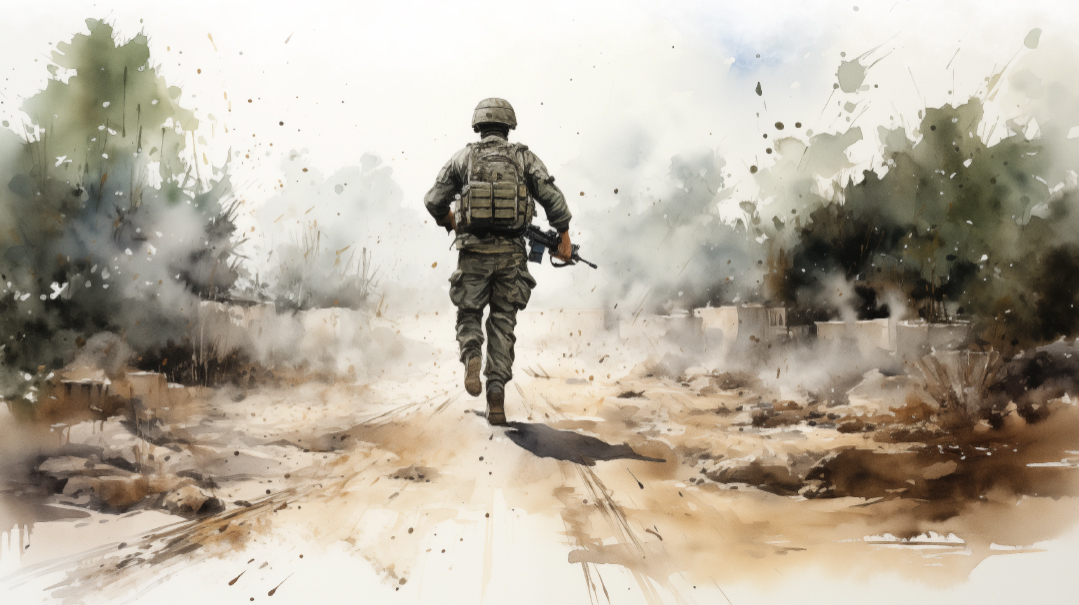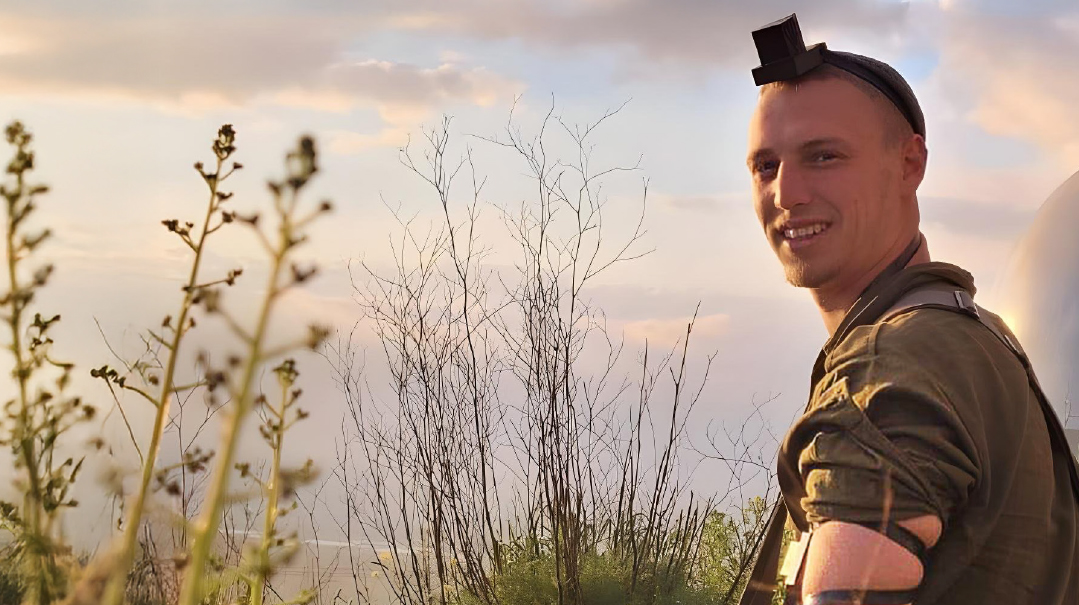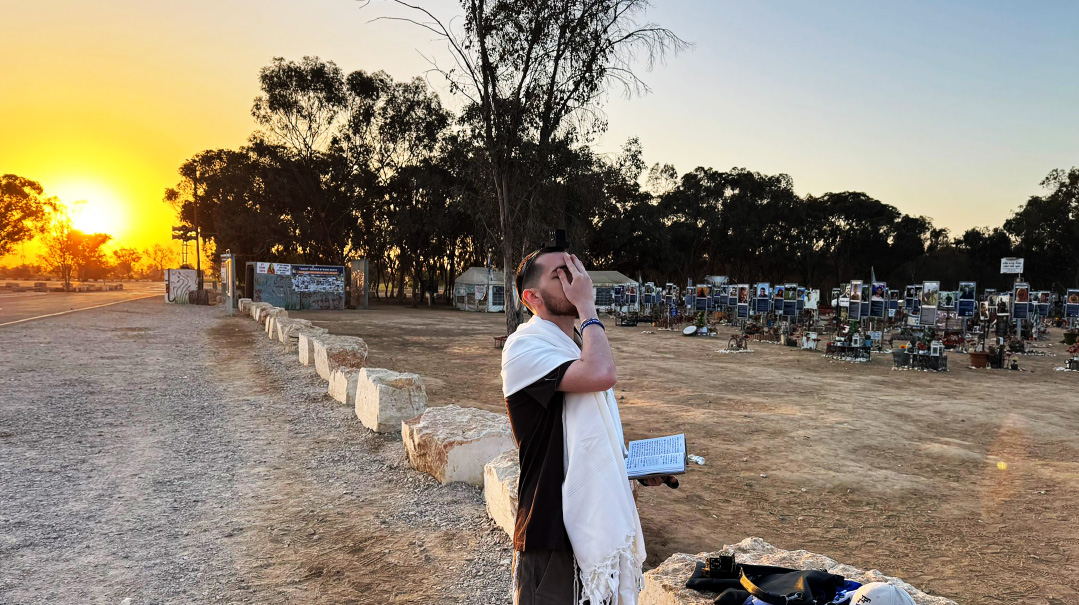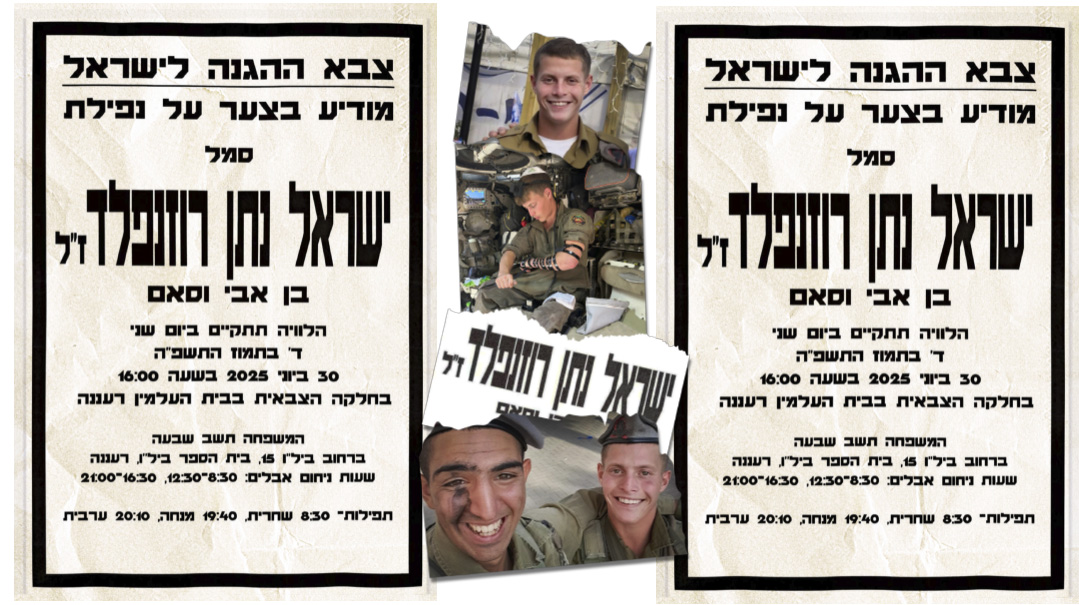A Soldier’s Wife
| January 2, 2024I walked into my room on Shemini Atzeres morning and saw my tzaddik of a husband on his phone

MY parents had just moved from Monsey down to Florida, along with the rest of Klal Yisrael (or at least along with many of their old neighbors and friends), and we traveled from Israel to spend Succos with them.
Before we left Israel I’d been worried. Who would we stay with for First Days? Second Days? Which siblings would come and when? Would we end up spending quality time with everyone? And where would we go on Chol Hamoed? Disney World… was it worth it?
Such drama. Ha ha, that seemed important then.
It was a fun Yom Tov… really. My kids got to play with their cousins from early morning until late at night. We live so far away, so these times are precious.
Late on Shemini Atzeres night, my husband’s ringing phone woke us up. It was ringing nonstop. Yoni, I thought, you must have left a reminder on. He tends to do that.
(Later, our neighbors back home in Beit Shemesh told us that a large white van pulled up outside our home, and someone knocked on our door looking for my husband. But we were in sunny Florida, and we didn’t know any of this.)
We closed the closet door so that the ringing from his phone wouldn’t disturb us and went back to bed, sleeping soundly. My husband was tired after having been awake all night on Hoshana Rabbah. This was the first night he was sleeping in a bed; he’d been on the floor of the succah the whole Yom Tov. (Little did we know it would be his only night sleeping in a bed for a very long time. But I digress. We were still totally unaware that something terrible was going on.)
Then it happened. I walked into my room on Shemini Atzeres morning and saw my tzaddik of a husband on his phone. He looked at me, and his face was white. I was sure someone had died. He said, “Hamas entered Israel, they took babies and children to Gaza, they killed tons of people; there are parts of Israel not under Israeli control. I was called up.”
Another phone call came through. Yoni put it on speaker: “Gut Shabbos. Ayfo atah, achi? Atah tzarich tremp? Ani baderech — Where are you, my friend? Do you need a ride? I’m on the way to get you.” It was my husband’s friend from yeshivah. They’re in the same army unit, and he lives near us in Beit Shemesh.
“I’m in Florida,” my husband answered. “But I’m coming.”
My husband had learned the halachos of war. He used a shinui to call his commander and tell him he was in America. He was worried his unit would go ahead without him. They’d trained together for a theoretical war. Now it was real. He told me he really hoped he would make it in time to be with his unit, but in case he didn’t, he could probably join a different one.
My husband dialed El Al’s number with his knuckles so that it was a shinui. No one picked up so we left it ringing in the background for hours while we tried to have a Yom Tov meal. I felt sick. We couldn’t eat. I told the kids Abba would be joining a war soon.
Finally, El Al answered. There was a ticket available for tomorrow, Simchas Torah morning. My husband booked a flight just for himself. I wondered how I would fly home alone with the little kids.
It’s been over two months now, and I can separate the time into stages of grief. It started with shock or denial. This isn’t real. This isn’t happening. Now, I oscillate between sadness and acceptance, even pride.
I’m sad. Sad that our life is on hold. When will I do XYZ? After the war, is the answer. Right now, I’m focused on getting through the day. I’m sad for my kids that they have to experience this kind of difficulty at such a young age — war, their father on the front lines. I hope they’ll come out more resilient. But what do I say to my five-year-old who asks me if Abba will die? What do I say when he asks me when Abba is coming home? What do I say when he asks if Abba will be home for his birthday?
I don’t answer. I just give him a hug and we cry together.
I live in a neighborhood where most of the husbands are home; they haven’t been drafted. Many of the husbands are in learning or are rebbeim. Sometimes I’m jealous.
But I also feel pride. I’m proud of him and I’m proud of myself. I know my husband is doing holy work. He’s giving himself for the klal in the most extreme way possible. He gives me chizuk when he tells me how he’s not proactively choosing which shift to take or where he will guard. He ends up wherever Hashem puts him. He tells me how all the soldiers are wearing tzitzis, even those who never wore them before the war, and some are learning daf yomi together when they can. Being alone at home while my husband is at war is painful, but it’s not about me and my private struggle. This is a struggle I’m experiencing together with all of our nation, and that is beautiful.
So many people help us. They send us toys, food, clothing, and jewelry. An old neighbor from Monsey sent me vacuum-packed cooked food. It arrived cold, but it warmed my heart.
It doesn’t really matter what people send or do for us. What matters is that they care. A neighbor knocked on the door and asked if she could take out my garbage. I said, “Thank you, of course!” I didn’t feel like a nebach because I’m giving up my husband for Klal Yisrael, and Klal Yisrael is doing whatever it can to help in return.
I wonder: Will I make a Seder by myself? Will we spend Shavuos in my husband’s yeshivah like we do every year?
I force my thoughts to think about the party, the seudas hoda’ah I’ll make on my husband’s return and not on the speech I will make at his levayah, chas v’chalilah. I talk to my kids about the party. We discuss where it will be held and what we will serve. My kids have already colored pictures to decorate the walls with.
It gives us strength to discuss the after. I don’t know when it will be, but we’ll make this party. A party of thanks to Hashem for our victory.
B’zechus nashim tzidkaniyos nigalu miMitzrayim. The women prepared tupim because they knew they would dance their way out of Mitzrayim. Today, I try so hard to believe that very soon we’ll do a victory dance all the way to the Beis Hamikdash.
(Originally featured in Family First, Issue 875)
Oops! We could not locate your form.







